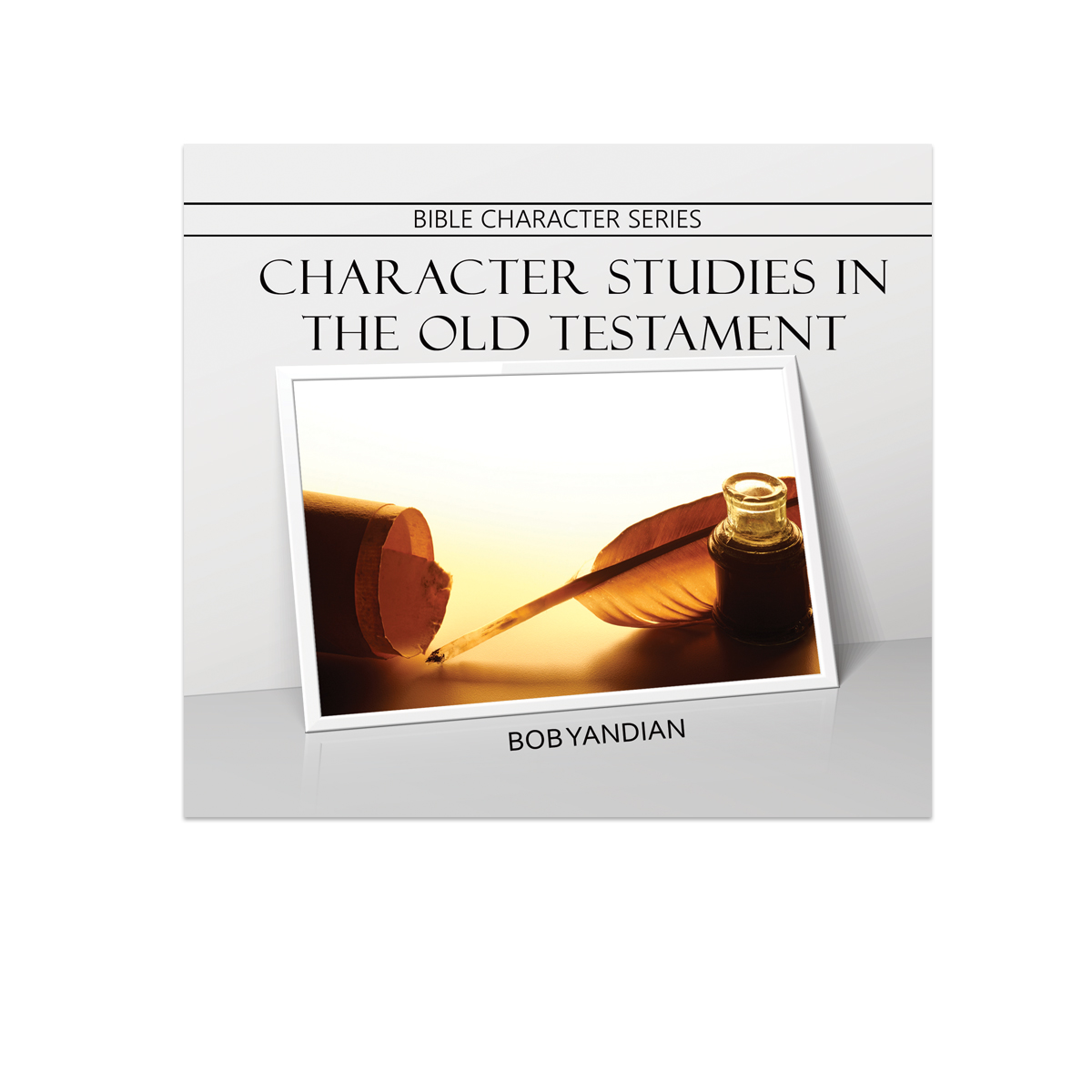The Story of Elimelech – Lessons from a Backslider
Bob Yandian
“Now it came to pass, in the days when the judges ruled, that there was a famine in the land. And a certain man of Bethlehem, Judah, went to dwell in the country of Moab, he and his wife and his two sons. The name of the man was Elimelech, the name of his wife was Naomi, and the names of his two sons were Mahlon and Chilion—Ephrathites of Bethlehem, Judah. And they went to the country of Moab and remained there. Then Elimelech, Naomi’s husband, died; and she was left, and her two sons. Now they took wives of the women of Moab: the name of the one was Orpah, and the name of the other Ruth. And they dwelt there about ten years. Then both Mahlon and Chilion also died; so the woman survived her two sons and her husband.” (Ruth 1:1-5)
The History of Moab
The Moabites and Ammonites were descendants of Lot’s night of drinking and incest with his daughters (Genesis 19:30-38). As a race, the Ammonites were into blatant, sexual perversion. The Moabites were more subtle and subversive, looking for ways to undermine and overthrow Israel. The carnal Jewish prophet Balaam was hired by the king of Moab to do just that, overthrow Israel.
Moab was a product of incest. The chief god of Moab was Baal-peor. He was worshipped by child sacrifices thrown into the fire when times of famine, drought or plague hit the land. Sexual orgies and self-mutilation accompanied his worship to bring fertility to the farmlands of Moab. In the Mosaic law a special law was set against the Moabites living among them. They could not share in worship until after the tenth generation (Deuteronomy 23:3). During the Judges, Israel had a taste of Moabite rule. They were oppressed for eighteen years under Eglon, the fat, wicked king of Moab (Judges 3:14). That alone should have warned Elimelech.
Two Questions
The first chapter of Ruth is filled with tragedy and sadness brought into a family by the carnality of the father. Salvation answers two questions. First, it guarantees our eternal future in heaven after death. A second question needs to be answered, what do I do with my life until then? This is God’s plan of spirituality, becoming a disciple of the Lord you have accepted at salvation. You can have eternity in heaven waiting for you, but a second choice needs to be made for going through Hell or Heaven on earth for the rest of your life.
Elimelech’s Story
Instead of trusting the God of Israel during a time of famine, Elimelech chose to go his own way. He took his life, his future, his wife, and his two sons into his own hands. He placed his trust in his own plans over the promises and plans of God.
Elimelech made the right choice for eternity, but the wrong choice for the remainder of his life. Elimelech is described in the New Testament as a carnal believer (1 Corinthians 3:1-4). He joined many other Old Testament saints who followed their own fleshly desires, and though saved, lived a miserable life after salvation. King Saul, Solomon, Samson, and Balaam are only a few. Like Lot who fathered Moab, Elimelech was a carnal believer, who chose the wrong road in life.
Elimelech means “God is King.” He carried this name in front of all who lived in Moab, but never displayed it. He accepted the Lord as his savior but did not let Him reign as king. He could have been renamed, “I am king.”
Carnality never involves just you. It takes others with you, first your family. Elimelech allowed circumstances to move him out of God’s will. He went from Bethlehem (House of bread and praise) to a cursed land Moab (a son of incest). He put himself and his family above God.
Elimelech probably planned on staying in Moab just long enough to gain some money and move back to Bethlehem when the famine ended. Yet, he “remained there” (1:2). Elimelech knew he was wrong but did nothing. He allowed Moab into his life, and he died. Elimelech might have talked about the Lord at home, the covenants, the law, and patriarchs. But he forgot that a lifestyle must accompany beliefs. His boys had no spiritual daily life and no natural guide to help them until they could become personally responsible before God. They saw their father say one thing yet live another.
Elimelech’s Sons
You cannot bring up your children in a worldly atmosphere and be surprised when they have worldly appetites. Elimelech’s sons were raised in Moab during the most influential part of their lives. Moabite women married his sons. Mahlon married a Moabites named Ruth. Chilion married a Moabites named Orpah.
“Nor shall you make marriages with them. You shall not give your daughter to their son, nor take their daughter for your son. For they will turn your sons away from following Me, to serve other gods; so the anger of the Lord will be aroused against you and destroy you suddenly.” (Deuteronomy 7:3-4). After moving to Moab, Elimelech died within a few years. Both sons later died in Moab at the end of ten years of marriage.
Imagine the funeral of Elimelech. Pagans gave no hope to the sons or the mother. The neighbors probably offered a few pagan thoughts and quotes from the cultic religion. There was no mention of the scriptures, the promises given to Abraham, Isaac, and Jacob, or salvation by faith in Jehovah. No mention was given of his new home in Paradise or the same hope people could have who would accept the one true God.
Naomi and the two sons remained in Moab until the sons died. Imagine the funerals of Mahlon and Chilion. The same paganism was offered. Then Naomi was left in Moab (vs. 5). None of this was her choice. But her next choices were about to change her life and the lives of many more.
Can God Deliver You From the Sins and Failures of Others?
Of the family of four, only Naomi was left. She had inherited and now accepted responsibility for her two daughters-in-law.
Elimelech had followed the ways of the Moabites, putting his own life and family into jeopardy. He betrayed his own God and his own beliefs for the pleasures of Moab. His sons had little time to make their own choices, to keep their faith in God or go the way of their father and the lifestyle of the Moabites. The sons followed their father and Moab.
Naomi did not follow the ways of Moab or her husband Elimelech. She remained faithful to her faith in God. Now alone, she will decide to return to her God, her nation, and her own people.
Success in life is made by your own choices. Your success or failure is determined by your choice to follow God or those around you. Success takes work. Failure comes by just giving up.
When Are You Going to Quit Blaming Others for Your Life?
You do not become a success when you become a success. You become a success when you choose to quit being a failure. You accept your failures as your own and not the fault of others. You cannot blame your failure on today’s society, your mother or father, your sister or brother, your uncle or grandfather, your friends, the church, the pastor or even Satan himself. To each problem of life you could have just said, “no.” So, why not start saying it today?
When, like the prodigal, will you come to yourself and decide to return home? Leave the land of Moab and return to “the house of bread and praise.” Your journey home begins by confessing your sins to God and turning from them (Proverbs 28:13).
Naomi Begins Her Journey Home
“Then she arose with her daughters-in-law that she might return from the country of Moab, for she had heard in the country of Moab that the Lord had visited His people by giving them bread. Therefore she went out from the place where she was, and her two daughters-in-law with her; and they went on the way to return to the land of Judah.” (Ruth 1:6-7)
While traveling, Naomi told her daughters-in-law they had to make up their own minds whether to continue with her or remain in Moab. One remained in Moab and the other, Ruth, went with her mother-in-law, accepting Naomi’s nation as her own, her people as her own, and her God as her own. She became a believer in the Lord and her life was about to drastically change as she followed the example of a godly woman. Ruth would become what Naomi’s sons should have been, blessed immensely by God.
Elimelech’s wrong choices affected his family. Naomi’s right choices will also affect her family.






